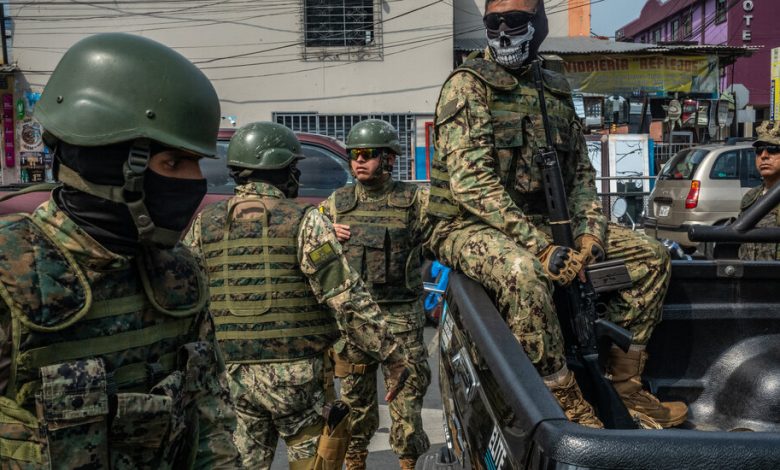Terrorized by Gangs, Ecuador Embraces the Hard-Line ‘Noboa Way’

Since Ecuador’s president declared war on gangs last month, soldiers with assault rifles have flooded the streets of Guayaquil, a sprawling Pacific Coast city that has been an epicenter of the nation’s yearslong descent into violence.
They pull men from buses and cars looking for drugs, weapons and gang tattoos, and patrol roads enforcing a nighttime curfew. The city is on edge, its men and teenage boys potential targets for troops and police officers who have been ordered to take down powerful gangs that have joined forces with international cartels to make Ecuador a hub of the global drug trade.
Yet when people see soldiers pass, many clap or give them a thumbs-up. “We applaud the iron fist, we celebrate it,” said Guayaquil’s mayor, Aquiles Álvarez. “It has helped bring peace.”
In early January, Guayaquil was hit by a wave of violence that could prove to be a turning point in the country’s long-running security crisis: Gangs attacked the city after the authorities moved to take charge of Ecuador’s prisons, which gangs largely controlled.
Police officers were kidnapped, explosives were detonated and in an episode broadcast live, a dozen armed men briefly seized a major television station.
The president, Daniel Noboa, declared an internal conflict, an extraordinary step taken when the state has come under attack by an armed group. He deployed troops against the gangs, which have overtaken much of Ecuador, battling to control cocaine-trafficking routes and transforming it from one of South America’s most peaceful countries into the deadliest.
We are having trouble retrieving the article content.
Please enable JavaScript in your browser settings.
Thank you for your patience while we verify access. If you are in Reader mode please exit and log into your Times account, or subscribe for all of The Times.
Thank you for your patience while we verify access.
Already a subscriber? Log in.
Want all of The Times? Subscribe.
